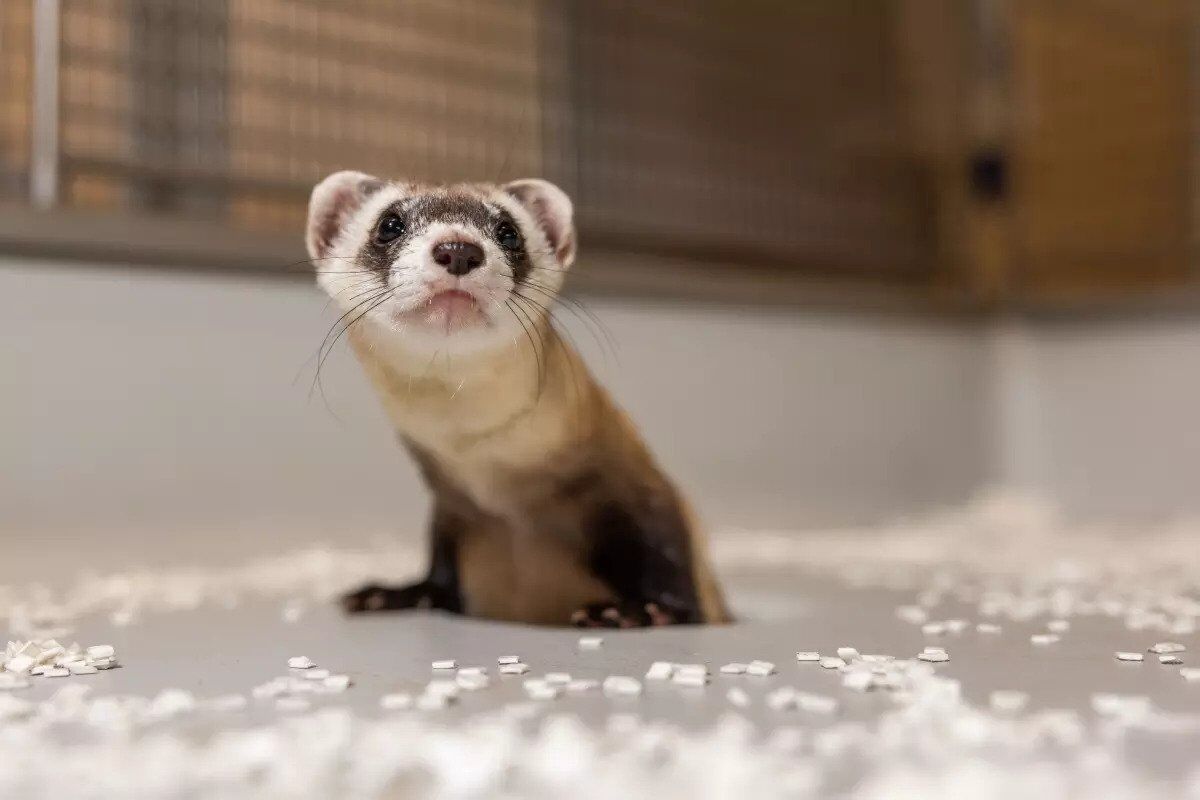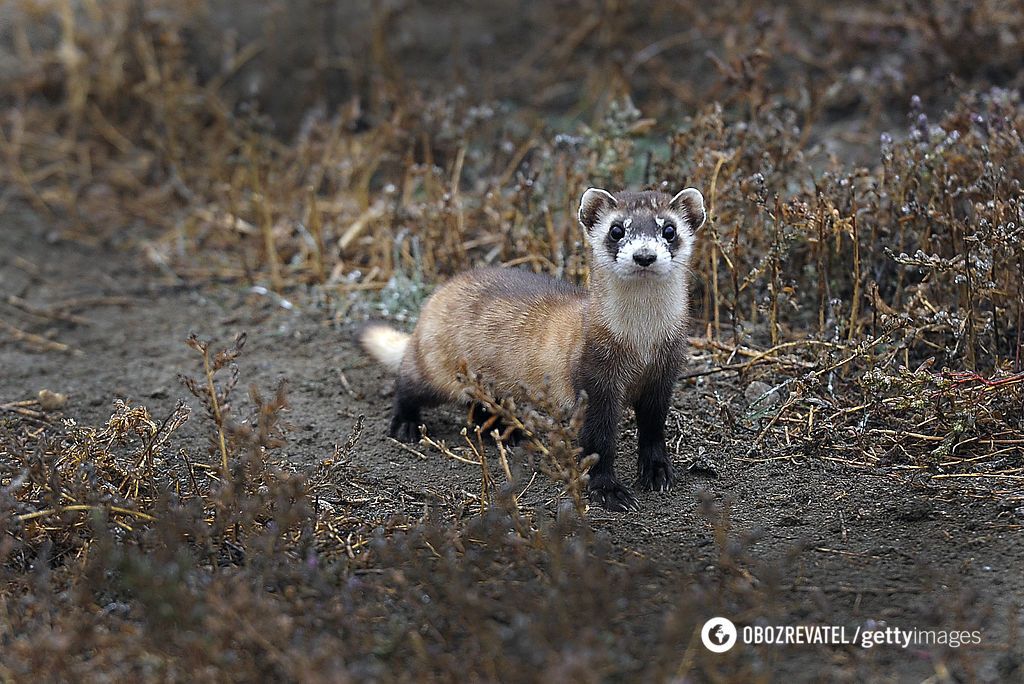News
For the first time in history, a cloned ferret gave birth to cubs. Photo
In 1979, the black-footed ferret was listed as an endangered species. More than four decades later, scientists in the United States have not only cloned the species from the last surviving wild animals, but one of these clones has given birth to two healthy cubs, a male and a female.
The new mother, named Antonia, was cloned from Will, a black-footed ferret who died in 1988 at the San Diego Zoo. At the same time, conservationists in the United States began a captive breeding program involving 18 black-footed ferrets (Mustela nigripes), ScienceAlert writes.
According to scientists, there are currently about 350 black-footed ferrets living in the wild, but these animals suffer from low genetic diversity, disease, habitat loss, and a decline in the species' main prey, meadow dogs.
Therefore, some experts argue that the future of the species depends on captive breeding and cloning.
Antonia was cloned from a tissue sample that contained three times as many unique genetic variations as the average black-footed ferret currently living in the wild, scientists say.
"The successful reproduction of a cloned endangered species proves that cloning technology can not only help restore genetic diversity but also enable future breeding, opening up new opportunities for species recovery," experts from the U.S. Fish and Wildlife Service (FWS) emphasize.
However, after reproduction, problems with reintroduction begin, scientists say. After all, the question of whether conservation cloning can really help restore endangered species in the wild remains very controversial.
The cloning of Antonia and the birth of her offspring is the culmination of decades of expensive work and several failed attempts. Some scientists argue that this time and money could have been better used to preserve habitats or revive places that will become home to more than one species.
After all, habitat loss and human-wildlife conflict is the main threat to most endangered terrestrial wildlife species, scientists emphasize. And black-footed ferrets are no exception, as they have lost most of their prairies to agriculture.
Only verified information is available on the OBOZ.UA Telegram channel and Viber. Do not fall for fakes!





























